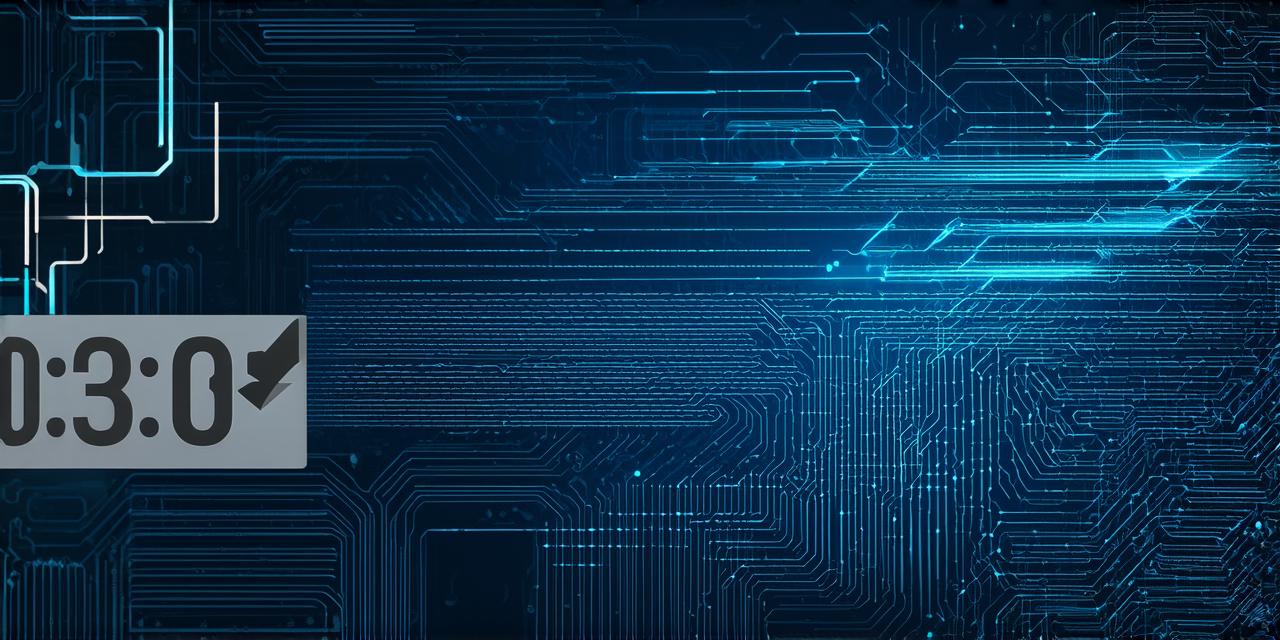How long does blockchain take to confirm
Blockchain technology has been around for almost a decade now, and its impact on the world of finance and data storage is undeniable.
However, one aspect of blockchain that often confuses people is how long it takes to confirm transactions on the network. In this article, we will explore this topic in-depth, discussing the factors that affect confirmation time, providing real-life examples, and answering some of the most common questions about blockchain confirmation times.
What is Confirmation Time in Blockchain?
Before diving into the specifics of how long it takes to confirm transactions on a blockchain network, let’s first define what confirmation time means. In simple terms, confirmation time refers to the time it takes for a transaction to be verified and recorded on the blockchain.

This process involves multiple steps, including checking for errors, ensuring that the sender has sufficient funds, and adding the transaction to the blockchain’s public ledger.
Factors Affecting Confirmation Time in Blockchain
There are several factors that can affect confirmation time on a blockchain network. These include:
Network Congestion
Network congestion occurs when the number of users trying to access the blockchain network at the same time exceeds its capacity. This can happen during periods of high market activity or during special events like major sporting events, where many people may be using the blockchain to make purchases or bets. When the network is congested, transactions may take longer to confirm as the network struggles to process the increased load.
Transaction Complexity
The complexity of a transaction can also affect confirmation time. More complex transactions, such as those that involve multiple parties or large amounts of data, may take longer to confirm than simpler transactions. This is because these transactions require more processing power and resources from the network, which can slow down the confirmation process.
Block Size Limitations
Each block on a blockchain network has a limited size, determined by the protocol used by the network. When the number of transactions that need to be confirmed exceeds the block size limit, new blocks must be created to accommodate them. This can increase confirmation time as the network must wait for these new blocks to be mined and added to the chain.
Mining Power
The mining power of a blockchain network, which refers to the amount of computing power used to mine new blocks, can also affect confirmation time. Networks with more powerful mining equipment can process transactions more quickly, resulting in faster confirmation times. Conversely, networks with weaker mining power may struggle to keep up with the demand for transactions, leading to longer confirmation times.
How Long Does Confirmation Take on Popular Blockchain Networks?
Now that we’ve discussed some of the factors that can affect confirmation time let’s take a look at how long it typically takes to confirm transactions on some of the most popular blockchain networks:
- Bitcoin (BTC): On average, it takes about 10 minutes for a transaction to be confirmed on the Bitcoin network. However, this can vary depending on the factors discussed above, such as network congestion and mining power. During periods of high market activity or network congestion, confirmation times can increase significantly.
- Ethereum (ETH): The Ethereum network is known for its faster confirmation times compared to Bitcoin. On average, it takes about 20 seconds for a transaction to be confirmed on the Ethereum network. However, this can still vary depending on the factors discussed above, such as network congestion and mining power.
- Ripple (XRP): Ripple is a fast and efficient blockchain network that is often used for cross-border payments.



